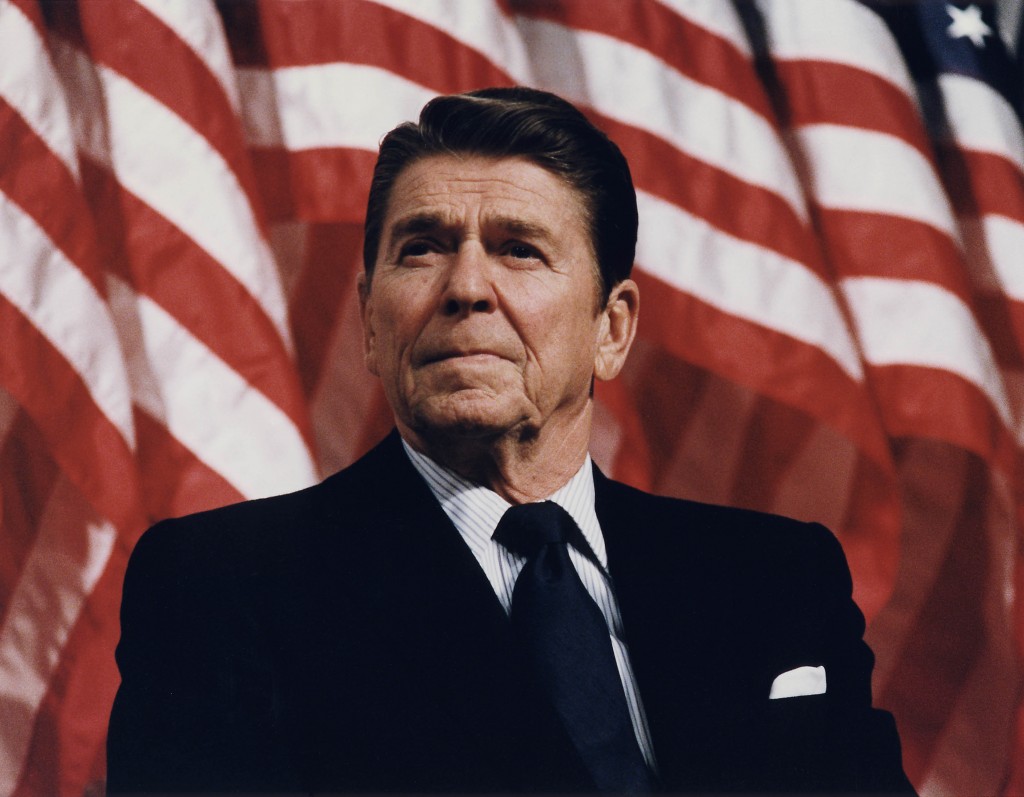Thank you for these posts on Machiavelli (here and here). That we have derived the word hypocrite from the Greek word for actor called up for me the image of Ronald Reagan, an actor whose enormous appeal as a politician had much to do with his ability to wear a mask and speak words that were complete illusions. It also called to mind a passage in Stendhal’s Le Rouge et le Noir, where the narrator observes of Julien Sorel, a young Tartuffe in training and a secret admirer of Napoleon, that he never felt comfortable in a social or political context–this would be during the very reactionary period of Charles X– unless he were saying something very different from what he actually believed.
I also thought of Michael’s earlier post quoting Frank Rich in the New York Times who, in contrasting Obama with his Republican opponents, refers to Frye’s definition of a good leader. When I first read that post I wondered where Frye had given such a definition. It appears to be from The Fools of Time and the discussion of the nature of the strong order figure in the context of Shakespearean tragedy. I have extracted a couple of passages below.
We are apt to assume, like Brutus, that leadership and freedom threaten one another, but, for us as for Shakespeare, there is no freedom without the sense of the individual, and in the tragic vision, at least, the leader or hero is the primary and original individual. The good leader individualizes his followers; the tyrant or bad leader intensifies mass energy into a mob. Shakespeare has grasped the ambiguous nature of Dionysus in a way that Nietzsche (like D. H. Lawrence later) misses. In no period of history does Dionysus have anything to do with freedom; his function is to release us from the burden of freedom. The last thing the mob says in both Julius Caesar and Coriolanus is pure Dionysus: “Tear him to pieces.”
And this passage:
Society to the Elizabethans was a structure of personal authority, with the ruler at its head, and a personal chain of authority extending from the ruler down. Everybody had a superior, and this fact, negatively, emphasized the limited and finite nature of the human situation. Positively, the fact that the ruler was an individual with a personality was what enabled his subjects to be individuals and to have personalities too. The man who possesses the secret and invisible virtues of human nature is the man with the quiet mind, so celebrated in Elizabethan lyric poetry. But such a man is dependent on the ceaseless vigilance of the ruler for his peace.
This view of social order, with its stress on the limited, the finite, and the individual, corresponds, as indicated above, to Nietzsche’s Apollonian vision in Greek culture. That makes it hard for us to understand it. We ourselves live in a Dionysian society, with mass movements sweeping across it, leaders rising and falling, and constantly taking the risk of being dissolved into a featureless tyranny where all sense of the individual disappears. We even live on a Dionysian earth, staggering drunkenly around the sun. The treatment of the citizens in Julius Caesar and Coriolanus puzzles us: we are apt to feel that Shakespeare’s attitude is anti-democratic, instead of recognizing that the situation itself is pre-democratic. In my own graduate-student days during the nineteen-thirties, there appeared an Orson Welles adaptation of Julius Caesar which required the hero to wear a fascist uniform and pop his eyes like Mussolini, and among students there was a good deal of discussion about whether Shakespeare’s portrayal of, say, Coriolanus showed “fascist tendencies” or riot. But fascism is a disease of democracy: the fascist leader is a demagogue, and a demagogue is precisely what Coriolanus is not. The demagogues in that play are the tribunes whom the people have chosen as their own managers. The people in Shakespeare constitute a “Dionysian” energy in society: that is, they represent nothing but a potentiality of response to leadership.
Frye notes that the Elizabethan structure of authority was not anti-democratic but pre-democratic, but his observations on the Dionysian energy of democracies and their potential for demagoguery, mob rule, and fascism are deeply pertinent to today’s world. A healthy democracy is doubtless the best form of government available, but fascism, as Frye observes, is one of the forms it can take in a sick society. Nothing better demonstrates this than the hatred and racism so outrageously fanned by the likes of Palin, Limbaugh, and Beck.
Frye notes, in another passage, that “the mob will not listen to anyone who, like Brutus or Coriolanus, disdains to use [rhetoric]” as a form of hypnotic illusion: “ Brutus, like many liberals, is anti-rhetorical, and Coriolanus’ ‘heart’s his mouth’: both are in consequence historical failures.” Stéphane Dion was such a failure in Canadian politics for precisely this reason: like many academics, he was anti-rhetorical and nerdishly sincere. He was obviously out of his element performing, all the more so with his poor command of English, and just kept insisting on the facts. In contrast, compare Chrétien: unable to speak either of the country’s official languages he made an endearing and trustworthy persona out of what would be for most anyone else insurmountable liabilities. Michael Ignatieff, another academic, may be good with words, but hard as he tries he is incapable of projecting the right kind of mask and rhetorical illusion that might appeal to the imagination of his public.
Reagan was successful because he was a good hypocrite in the original sense of the word and gave the demos the Apollonian illusion they craved. It is also no accident that the last two Democratic leaders to become president did not disdain the use of a persona and understood instinctively that words have power.

